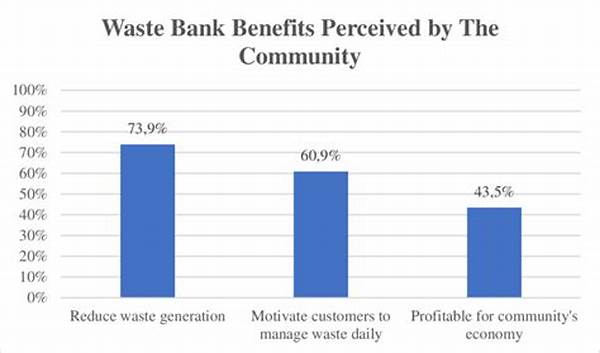In a world increasingly aware of the pressing need for environmental stewardship, initiatives like waste bank activities in schools are not just beneficial—they’re transformative. Imagine a program that not only empowers young minds with practical knowledge but also transforms waste into wealth. This is not your typical extracurricular activity; this is a thriving ecosystem where students become the champions of change. But what exactly makes waste bank activities at schools so compelling, and why should every educational institution consider adopting them?
Read More : How To Separate Hazardous And Toxic Waste From Other Waste At Home
Unique, engaging, and packed with potential, waste bank activities are reshaping the educational landscape. School waste banks serve as dynamic hubs for resource management, instilling in students a sense of responsibility toward the environment while fostering practical skills in waste management. Imagine students not only learning about recycling but actively participating in it. The allure of such initiatives lies in their ability to turn education into action and action into long-term environmental change. Dive with us into the fascinating world of waste bank activities at schools with this detailed exploration.
Education Meets Sustainability
Why Schools Need Waste Banks
The implementation of waste bank activities at schools has multiple layers of benefits, transcending the traditional classroom experience. At their core, these programs are designed to engage students in hands-on learning, providing them with a front-row seat to the impact of collective efforts. Just like a well-crafted marketing campaign, the intrigue here lies in the transformation and the visible results.
Firstly, waste bank activities teach students the value of waste reduction, encouraging them to think critically about their consumption habits. The process of sorting and categorizing waste—such as plastics, paper, and metals—not only teaches organization skills but also educates students on the lifecycle of materials. This active participation stokes interest and builds a culture of sustainability within school communities, potentially extending to homes and beyond.
Moreover, the inclusivity of these programs ensures that every student is involved, making environmental education accessible to all. In this educational model, learners become participants, and participants become educators, further enhancing peer-to-peer learning.
Economic Benefits of Waste Bank Activities
Beyond the environmental impacts, waste bank activities in schools offer significant economic advantages. Through the sale of recyclable materials, schools can generate funds that support various academic programs and extracurricular activities. This financial aspect turns waste management into a collective goal where everyone partakes in the rewards.
Students also learn valuable lessons in economics and entrepreneurship. They begin to understand market dynamics and pricing, enhancing their business acumen. This element of the program gets students excited about the potential of transforming waste into opportunity, adding a layer of depth to their educational narrative.
Building Community Values
An often-overlooked benefit of waste bank activities is their ability to cultivate strong community ethics. When students, teachers, and parents work together towards a common goal, the result is a more cohesive and caring community. This sense of collaboration is instrumental in creating a supportive school environment where communal values are prioritized.
Read More : Plastic Food Containers Bpa Free Versions Trending September
Schools often report an improvement in interpersonal skills and teamwork among students. Working together on waste management projects, learners develop compassion, communication skills, and a sense of agency that can translate into higher self-esteem and better future-ready citizens. Thus, waste bank activities become a cornerstone for holistic student development.
Practical Implementation in Schools
Step-by-Step Guide to Waste Bank Success
Community Integration
Schools can expand the impact of their waste banks by involving the local community. Partnering with local businesses and recycling centers can enhance the benefits of waste bank activities and serve as a united force for environmental advocacy.
Key Points: Transformative Impact of Waste Banks
Conclusion: A Sustainable Future Through Education
In conclusion, the benefits of waste bank activities at schools are extensive and deeply impactful. By integrating such programs into the curriculum, schools not only enhance student education but also play a direct role in promoting sustainability and supporting community value systems. Waste banks signify much more than recycling; they represent a future where education is a gateway to environmental consciousness and societal improvement.
By encouraging such initiatives, we are investing in future leaders and thinkers who understand the intricate balance between human activity and environmental stewardship. Given these compelling reasons, it’s no wonder that waste bank activities are fast becoming a staple in schools worldwide. As a society, delving into these programs ensures that we are not just thinking about the present but are also sculpting an environmentally responsible future.
Join the Movement
Embrace waste bank activities at school and become part of a powerful movement dedicated to creating an enriching educational experience that doubles as an environmental revolution. Be it in resources saved or future leaders shaped, the ultimate payoff is invaluable.










